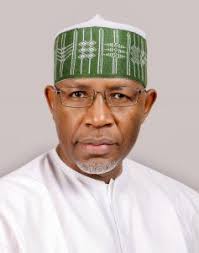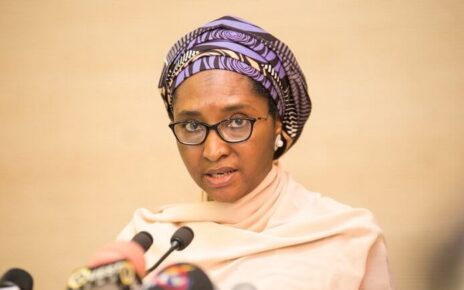The Director General of Nigeria’s Securities and Exchange Commission (SEC), Mr. Lamido Yiguda, on Thursday stressed that Commodities Exchanges remained critical to enabling investment diversification, risk management, price discovery and transactional efficiency in job creation and sustainable economic development of the country.
Yiguda made this remark at a one day stakeholders’ sensitisation workshop on commodities standards organised by the SEC in collaboration with the Standards Organisation of Nigeria (SON) in Kano, Kano State.
According to him, Commodities Exchanges have the potential to efficiently link commodities to industries, thereby creating jobs, improving living standards and unlocking the economic potentials of farming communities, promoting rural development, enhancing financial inclusion of small holder farmers, and ultimately facilitating economic development, amongst other benefits.
He described the workshop as timely in view of the Federal Government’s policy focus towards economic diversification and the need to deepen capacity across the agricultural value chain.
Yuguda explained that a thriving commodities trading ecosystem, with grading and standardization features, would ensure compliance with established grades and standards, eliminate or reduce the proliferation of sub-standard commodities in the markets, and encourage global acceptance of commodities produced in Nigeria, among other benefits.
According to the SEC Boss, the Technical Committee on Commodities Trading Ecosystem had in 2017, developed a Roadmap for the actualization of a vibrant commodities ecosystem. The Committee specifically identified the development of a grading and standardization system that will align with International best practice as an important precursor in achieving vibrancy in the ecosystem.
“I am happy to report that the Ecosystem Roadmap Implementation Committee has been working tirelessly on the development of a grading and standardization system. The initial stage of the development process would concentrate on delivery of standards for agricultural commodities.
“In this regard, we are working closely with the SON to create awareness for existing agricultural commodities standards, but more essentially to obtain feedback from stakeholders on the standards to be presented for consideration of stakeholders at this Workshop to trigger a review of inadequate standards if and where applicable.
In addition, Yuguda said the 10- year capital market master plan which is the blueprint for the growth and development of the capital market over the next decade, designates commodities exchanges as critical for enabling investment diversification, risk management, price discovery and transactional efficiency.
He said efficient Commodities Exchanges coupled with a grading and standardization system that will align with International best practice are no doubt critical elements in achieving a thriving Commodities trading value chain.
“Commodities Exchanges offer significant value addition by providing a platform that improves confidence and assurance, as trading activities within the platform are conducted in a fair, transparent and efficient management.
“In addition, commodities purchased through these Exchanges are guaranteed to comply with standards in terms of quality and weight.
“Nigeria strives to achieve a sustainably-diversified economy, food security and sufficiency, there is need for all stakeholders to ensure the effective adoption and enforcement of appropriate standards to establish quality, and reverse the embarrassing rejection of Nigerian-produced agricultural commodities outside Nigeria” he added
The SEC boss assured that the commission remained a strong advocate for a thriving commodities trading ecosystem and believes, and very strongly too, that “this is a project of national importance, given that an efficient commodities ecosystem can transform our economy by promoting economic diversification, and export promotion amongst others.”
In his remarks, Director General Standards Organisation of Nigeria (SON) Mallam Farouk Salim, said the role and importance of commodity markets cannot be overemphasized in connecting both producers and consumers in a centralized liquid marketplace and for the economic growth of the nation.
According to him, countries with older and better commodity exchanges have historically gained economical advantage over others adding that in support of Nigeria’s readiness to key into the global sustainable commodity market, SON is ready to partner in areas where its services and products are needed including; development of new Standards and review of existing ones.
The SON boss explained: “Trading in agricultural produce among which are: Wheat, rice, corn, soybeans, maize, groundnut are growing steadily. There is no gain saying that ‘Without agricultural commodities, the world will starve’. This sector of the commodity market has thus become important in support of the economic diversification policy of the Federal Government.
“Commodity standards and grades provide a means for measuring levels of quality and value for agricultural commodities. These standards provide a basis for domestic and international trade and promote efficiency in marketing and procurement.
“In connecting buyers and suppliers, the market ensures that the quality of the commodities exchanged is in accordance with the required guidelines which is none other than Standards. This, you will all agree, is largely achievable with compliance to quality requirements specified in each commodity standard”, Salim added.
He assured that the SON was committed to ensuring that the primary objective of the commodity exchange to offer fair pricing to the producers and deliver genuine commodities to the consumers is continuously achieved through quality production based on conformity to applicable Standards.
In his goodwill message, Governor of Kano State, Alhaji Abdullahi Ganduje, said the state remained in the forefront of enhancing agricultural activities in Nigeria, adding that there is also need to be able to reach out to the farmers in the languages they can understand to as to understand the importance of the program.
Represented by the Deputy Governor, Alhaji Nasir Gawuna, the governor canvassed the need for the farmers to be familiar with the standards first before they can be encouraged to use it in packaging of their produce.




